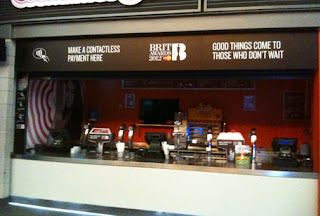Following up to the Grammy awards which
took place in February this year, CBS (one of the US biggest commercial
broadcasting televisions networks) made a statement issuing a dress code for
the attending stars not to revel too much skin as seen in past events
past. CBS demanded for ‘buttocks
and breasts to be adequately covered’ and warned against “exposure of the
genital regions” and that “thong type costumes are problematic” as well as
stating, “please avoid shear see-through clothing”. (The
Standard, 2013)
So none of this…
Remember this?....
And especially not this….
Although looks like someone didn’t care for the memo as
KImbra (who won a grammy for “somebody That I used To know”) tweeted a response
saying “Please avoid crimping my style”.
How much skin is inappropriate, and hasn't these outfits at
the Grammy’s each year become the norm? Now at the Oscars for example you
anticipate the classy, elegant and tasteful gowns on the red carpet.
Was there even a point in CBS making the announcement? Public
relations director Anne Gregory says “the fear of many public relations practitioners
is that these opinions could be drawn together and focused by the media against
the organization… public opinion strongly held affects management decisions… PR
practitioners ensure management are aware of public opinions so the can make
decisions in the light of it” (Gregory. A, 2010, pp.99). What’s your opinion, after
all we are the ones watching?
For more on PR check out the following book:
Gregory, A. (2010) Planning and managing public relations campaigns: A strategic approach. London: Kogan Page, pp.99-102
The Standard (2013) CBS issues dress code for 'breasts,' 'buttocks' at Grammy show. [online] Available at: http://www.standard.net/stories/2013/02/07/cbs-issues-dress-code-breasts-buttocks-grammy-show [Accessed: 20 Apr 2013].


















